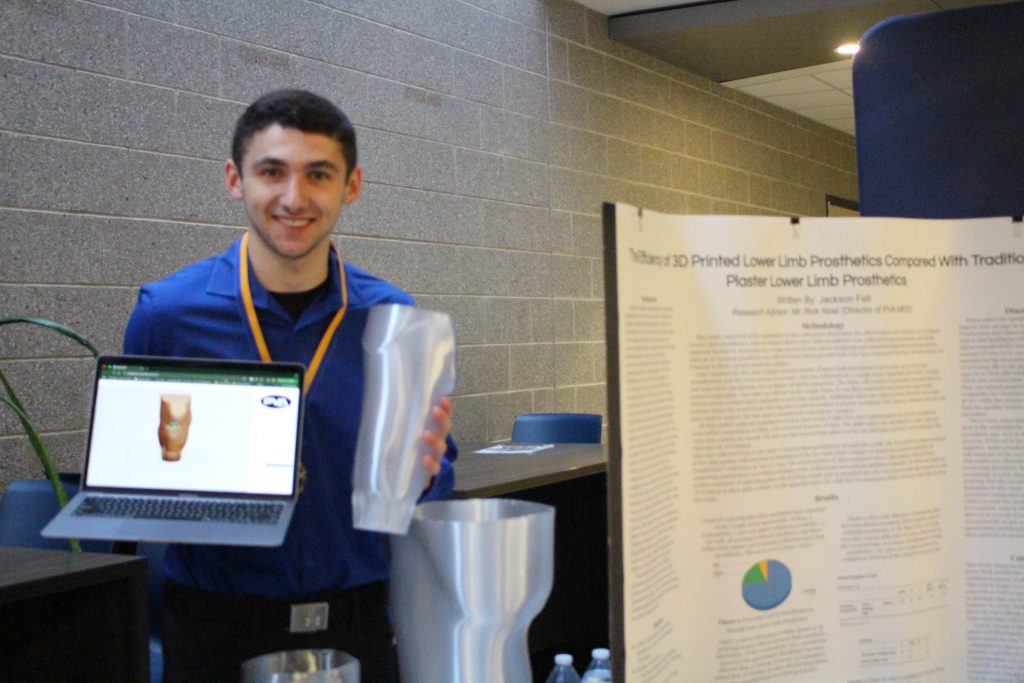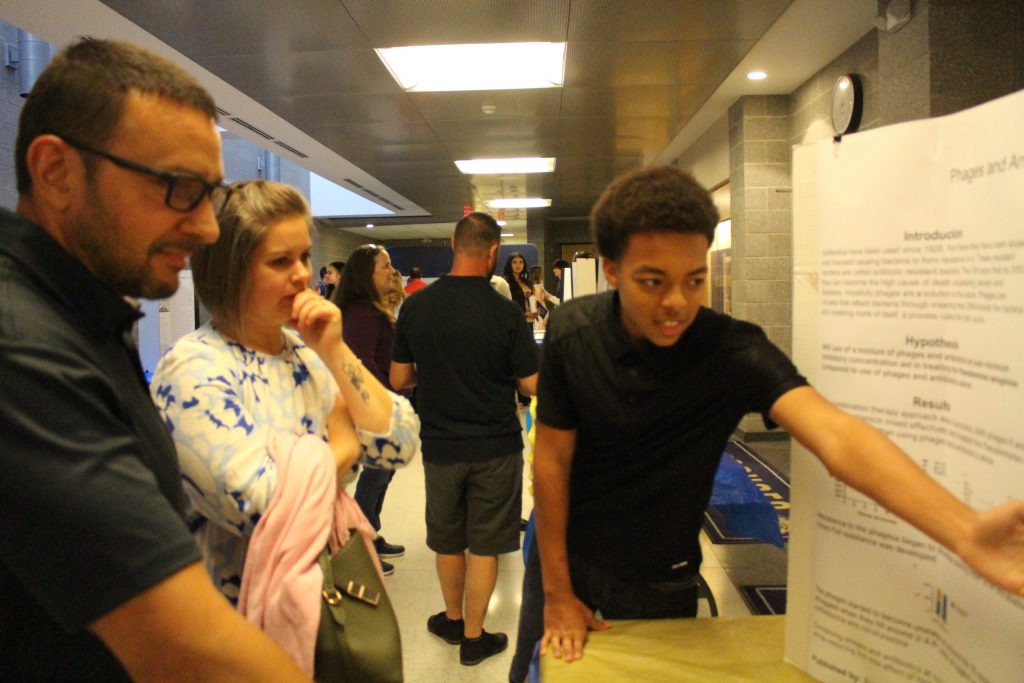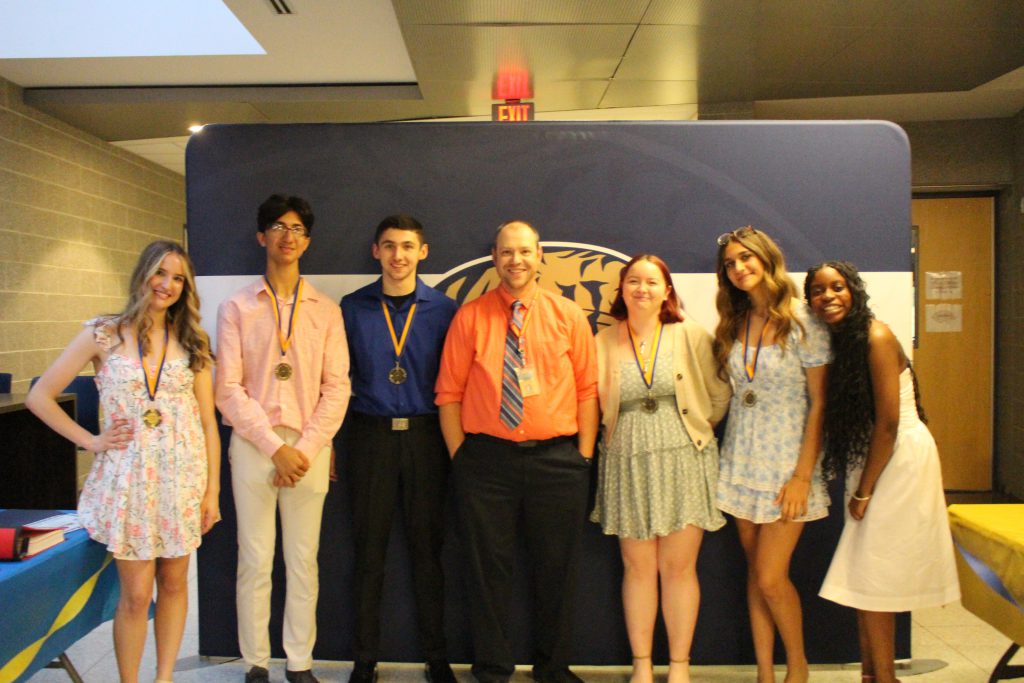Students in the CHS Science Research class gathered last night for the 23rd Annual Science Research Symposium.
It’s the culminating event for the Science Research course, a three-year program through the University of Albany’s “University in the High School” program. This year’s group included 16 students – six seniors, two juniors and eight sophomores.

Topics ranged from “The Efficiency of 3D Printed Lower Limb Prosthetics Compared With Traditional Plaster Lower Limb Prosthetics,” “Stability of Prebiotic Molecules in Impact-Generated Hydrothermal Systems,” “Perceptions of the Effect of Mental Illness on Criminal Behavior” and “The Effect of Perception on the Groovability of Music,” to name a few
The keynote speaker was Dr. Karyn Rogers, an associate professor in the Earth & Environmental Sciences Department at RPI and director of the Rensselaer Astrobiology Research and Education Center (RARE).
The Science Research class is led by Earth Science Teacher Michael Kloczko and is offered to all students in their sophomore year. Once they choose their projects, students begin reading peer-reviewed journal articles and reach out to professionals with hopes that they will eventually become their mentor for three-years. The bulk of the work is done during their junior and senior years, and the seniors present theirs at the symposium.
“Anyone can do it,” said Mr. Kloczko. “The most important thing is not where you are in science, but where you want to go.”

It can be a life-changing course for students. Senior Lola Stebbins originally planned for a career in law, but changed to biological sciences after choosing her topic, “Testing the Effectiveness of Bilateral Versus Multidirectional Eye Movements In Relation to Academic Stressors.”
Lola, who used to get nervous to speak in public, said her twice-a-year presentations in class helped ease that fear. Students also meet one-on-one with Mr. Kloczko every two weeks to discuss their progress.
“It has made me a confident speaker because I know my topic very well,” said Lola. “You get used to doing presentations in class and you also have to learn to take constructive criticism and make your presentation even better next time.”
Mr. Kloczko agreed, explaining that the program not only builds confidence, but teaches students important life skills that they will take with them to college and beyond, such as how to research, how to communicate effectively by phone or email, how to draft a professional email, learning how to follow up, etc.

“This is a particularly strong senior group who are working with high level researchers,” said Mr. Kloczko. “They took the lead on this project and I couldn’t be more proud. It’s been an honor working with all of these students, but it’s always bittersweet when I have to say goodbye to my seniors.”
For upcoming sophomores next fall deciding whether they want to join the program, the commitment is a big one, but one that will have a lasting effect.
“It’s a lot of dedication, but if you find something that you love it’s worth it,” said Lola.